Sparkle, Hollywood's latest musical drama, is scheduled to arrive in theaters on Aug. 17. Ahead of its release, GRAMMY.com previewed Sparkle with GRAMMY nominees Jordin Sparks, who stars in the film's leading role, and Salaam Remi, who scored the film.
A remake of the 1976 film, Sparkle tells the story of Sparkle Anderson (Sparks) and her two sisters and their aspirations to form a Motown group. The cast includes Carmen Ejogo, Mike Epps, Cee Lo Green, and Derek Luke, among others. The late Whitney Houston plays the role of the mother Emma, who is reluctant to support her daughters' dreams of a musical career. Sparks makes her feature film debut in Sparkle, which proved to be the last film project for Houston, who died Feb. 11.
"Working with Whitney was a dream come true for me and it's also become a huge blessing," says Sparks. "When we were filming [the movie,] we knew it was something really special. And for her to not be here, it's made it very bittersweet. It was something that she worked on for so long and something that she loved so much."
"For me it was [also] bittersweet because [composing] the score is one of the last things to do," adds Remi. "Watching the film within weeks of her actually passing was really a lot to take on."
In addition to Remi's score, the film's soundtrack includes songs performed by Green, Ejolo, Goapele, and Sparks. The soundtrack also contains the final recorded performances by Houston, including "Celebrate," a duet with Sparks. Sparkle marks Houston's fifth and final feature film role. The film is dedicated to her memory.
Find Sparkle show times in your area
news
Jordin Sparks, Salaam Remi Talk Sparkle
In an exclusive interview, Sparkle star and composer discuss their roles in the film and working with the late Whitney Houston
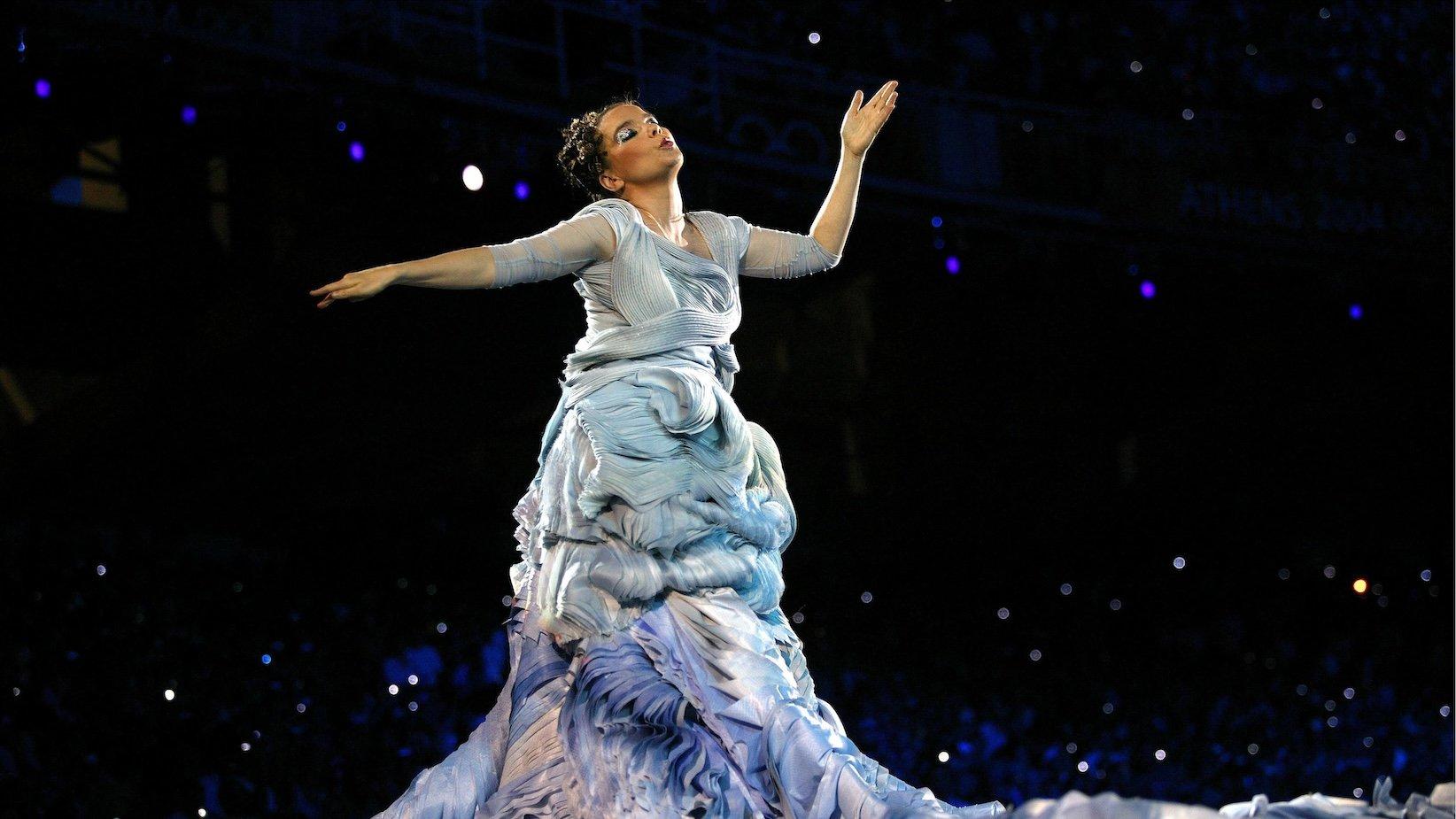
Photo: Mick Hutson/Redferns
list
When The GRAMMYs & Olympics Align: 7 Times Music's Biggest Night Met Global Sports Glory
Before the Olympic Games begin in Paris on July 26, dive into the intertwined history of gold medalists and golden gramophones.
The GRAMMY Awards and the Summer Olympics are unarguably the pinnacles of their respective fields. Indeed, most recording artists dream of making an acceptance speech for their magnum opus during the biggest night on the music industry calendar, while athletes competing in any of the Games’ 32 different disciplines are continually motivated by the lure of the podium.
But how often have the two intertwined since the first GRAMMY ceremony took place a year before Rome 1960?
Well, perhaps more than you think. Sure, the musical efforts from basketballers Shaquille O’Neal (gold at Atlanta 1996), Kobe Bryant (gold at Beijing 2008 and London 2012), and Damian Lillard (gold at Tokyo 2020) might not have registered with the Recording Academy. Likewise, those from track and field hero Carl Lewis (nine golds and one silver from four consecutive Games), light middleweight boxer Roy Jones Jr. (silver at Seoul 1988), and near-superhuman sprinter Usain Bolt (eight golds from Beijing, London, and Rio 2016).
But there are a handful of sportsmen (sadly, not yet sportswomen) who have competed for both gold medals and golden gramophones. There are also pop stars who have attempted to capture the blood, sweat, and tears of the quadrennial spectacle in musical form — whether as an official anthem, television theme, or simply a motivational tool — and been rewarded with GRAMMY recognition for their efforts.
With the Olympics’ return to Paris just around the corner (July 26-Aug.11), what better time to celebrate those occasions when the Games and the GRAMMYs align?
Gloria Estefan & Björk's Themes Pick Up GRAMMY Nods
It seems fair to say that Gloria Estefan, the Cuban hitmaker who helped to bring Latin pop to the masses, and avant-garde eccentric Björk, wouldn't appear to have much in common. They have, however, both received GRAMMY nominations in the Best Female Pop Vocal Performance category for their respective Olympics themes.
Estefan was recognized at the 1997 ceremony for "Reach," the gospel-tinged power ballad that embodied the spirit of the previous year's Atlanta Games. Iceland's finest musical export picked up a nod for "Oceania," the swooping experimental number she co-produced with Warp label founder Mark Bell which helped to soundtrack the opening ceremony of Athens 2004. And both went home empty-handed, the former losing to Toni Braxton's "Un-Break My Heart" and the latter to Norah Jones' "Sunrise."
Whitney Houston's Momentous Live Performance
The incomparable Whitney Houston might not have added to her GRAMMY haul at the 1989 ceremony — Tracy Chapman's "Fast Car" prevented her from converting her sole nod, Best Female Pop Vocal Performance, into a win — but she still stole the show. Houston owned opened the 31st GRAMMY Awards with a performance of "One Moment in Time," the nominated track that had defined NBC's coverage of the Seoul Games.
Co-written by Albert Hammond, produced by Narada Michael Walden and featuring the London Symphony Orchestra, the UK chart-topping single certainly had a first-class pedigree. But it was Houston's lung-busting vocals that made the torch song such a sports montage favorite. The iconic diva once again stirred the emotions on the music industry's biggest night of the year with a rendition that's since become a staple of her many hits collections.
Oscar De La Hoya Swaps Ring For Recording Studio
Shakira fought off some interesting company to win 2001's Best Latin Pop Album GRAMMY. Alongside records from Luis Miguel and Alejandro Sanz, the category also included Christina Aguilera's first Spanish-language affair, and a bilingual effort from champion boxer Oscar De La Hoya.
The American became a national sensation overnight when he won the men's lightweight boxing gold at the 1992 Barcelona Olympics. But despite new material from seasoned hitmaker Diane Warren and a cover of Bee Gees' classic "Run to Me," his 13-track self-titled debut didn't exactly set the charts alight. Despite the GRAMMY nod, De La Hoya hasn't entered the recording studio since.
Muhammad Ali Is Recognized For His Way With Words
But when it comes to GRAMMY-nominated boxers, then the man who famously floated like a butterfly and stung like a bee is undoubtedly the don. Shortly before he changed his name from Cassius Clay to Muhammad Ali, the light heavyweight gold medalist of the 1960 Rome Games was recognized for his amusing repartee in the Best Comedy Performance category. Hailed by some as a progenitor of the rap artform, I Am the Greatest lost out to a man slightly different in stature: portly parodist Allan Sherman.
And the sporting icon also had to experience another rare defeat 13 years later when his reading of The Adventures Of Ali And His Gang Vs. Mr. Tooth Decay lost out to Hermione Gingold & Karl Böhm's Prokofiev: Peter and the Wolf/Saint-Saëns: Carnival of the Animals in 1977’s Best Recording for Children.
John Williams' Winning Olympic Fanfare
Legendary composer John Williams is one of the most-nominated artists in GRAMMY history having amassed 76 nods since his work on detective series "Checkmate" was recognized in Best Score Soundtrack for Visual Media in 1962. Two of his wins in this remarkable tally have been Games-related.
In 1985, Williams won Best Instrumental Composition for "Olympic Fanfare and Theme," which he wrote and arranged for the Los Angeles Games the year prior. In 1989, the conductor received a nod in the same category for "Olympic Spirit," another majestic instrumental produced for NBC’s coverage of Seoul '88.
Interestingly, Wiliams isn't a particularly avid sports fan, but as he told The New York Times, he can still relate to those going for gold. "The human spirit stretching to prove itself is also typical of what musicians attempt to achieve in a symphonic effort."
Magic Johnson’s Educational Guide Wins Best Spoken Word Album
Basketball appears to produce more aspiring musicians than any sport. Marvin Bagley III, Lonzo Ball, and Brandon Clarke are just a few of the NBA names to have released albums in the last few years. But the only time a hooper has been recognized at the GRAMMYs is for an audiobook.
The year before guiding Team USA to the men's basketball gold at Barcelona 1992, Magic Johnson had bravely revealed that he'd contracted HIV, defying the stigma that surrounded it at the time. The year after his Olympic triumph, the iconic shooting guard was honored for joining the fight against the disease. Johnson won the Best Spoken Word or Non-Musical Album GRAMMY for What You Can Do To Avoid AIDS, a compassionate guide designed to educate the youth of America whose proceeds went to the sportsman's eponymous foundation.
Chariots Of Fire Is Nominated For Record Of The Year
Based on the real-life exploits of British runners Harold Abrahams and Eric Liddell at the 1924 Paris Olympics, period drama Chariots of Fire won Best Picture at the 1982 Oscars. But it’s the titular number from Vangelis' anachronistic synth-based score that remains its crowning glory.
First played as the aspiring Olympians train beachside in the slow-motion opening flashback, the instrumental not only topped the Billboard Hot 100, it also picked up a GRAMMY nod for Record of the Year. "Chariots of Fire" has since become synonymous with the more modern iteration of the Games, appearing in the BBC's coverage of Seoul '88, gracing the start of the men's 100m final at Atlanta '96, and perhaps most famously of all, being performed at London 2012's opening ceremony by none other than Rowan Atkinson's rubber-faced buffoon Mr. Bean.
Read more: 10 Essential Vangelis Albums: Remembering The Electronic Music Pioneer
Latest News & Exclusive Videos

2024 Paris Olympics Opening Ceremony: Watch Celine Dion, Lady Gaga, Gojira & More Perform

Ice Spice Is The Drill Queen On 'Y2K!': 5 Takeaways From Her Debut Album

New Music Friday: Listen To New Songs From Halsey, MGK And Jelly Roll, XG & More

Watch Young MC Win Best Rap Performance In 1990

The Red Clay Strays Offer A New Kind Of Religion With 'Made By These Moments'
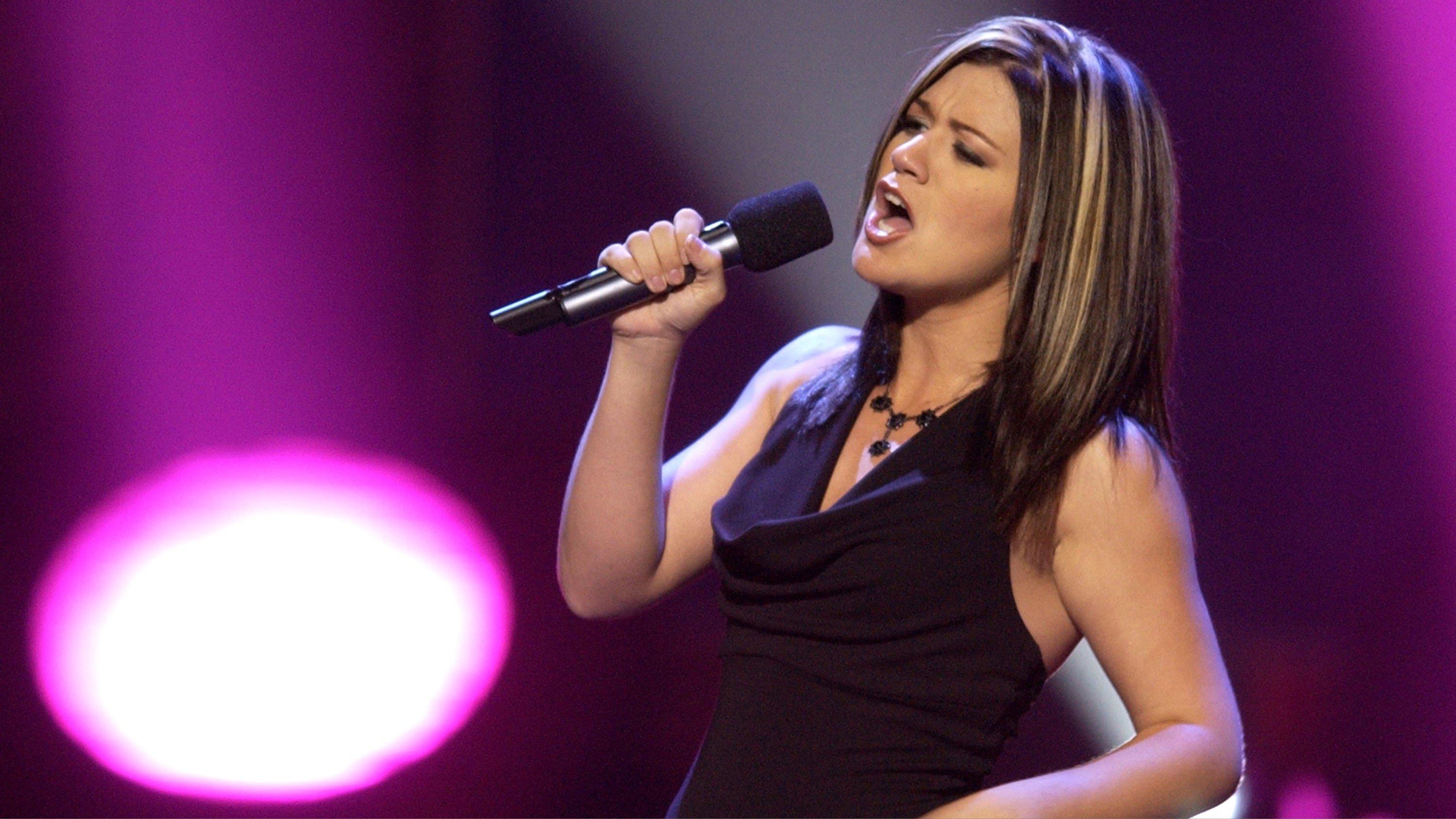
Photo: Steve Granitz / GettyImages
news
On This Day In Music: "American Idol" Premieres On Fox Network
For decades, "American Idol" has been instrumental in discovering some of music’s biggest names and pioneering the reality TV contest genre. As the show enters its 22nd run, here’s a look at how it has become an iconic household staple across the country.
For countless Americans, "American Idol" is intertwined with core memories as a show that had families eagerly glued to their TVs twice a week. It brought generations together, creating moments of both suspense and excitement that are still remembered today, as the show continues to run in its 22nd season.
Created by visionary entrepreneur Simon Fuller, "American Idol" premiered on June 11, 2002, as a fresh spin-off of the British program "Pop Idol." It revolutionized how Americans engaged with reality TV through its interactive, viewer-driven voting system, which encouraged audience participation in the success of their favorite contestants. The show also offered viewers a glimpse into contestants' candid backstories and personal journeys, anchoring emotional investment and skyrocketing the show's popularity.
The show's debut season featured a dynamic trio of judges: singer Paula Abdul, TV personality Simon Cowell, and producer Randy Jackson. Their contrasting personalities brewed a chemistry as captivating as the hopeful performances. Abdul’s warmth, Cowell's blunt wit, and Jackson’s humor added extra layers of entertainment, making the twice a week broadcasts a must-watch.
The first season of "American Idol" also unforgettably introduced the country to Kelly Clarkson. Since her debut — with a heart-tugging backstory about being the average girl-next-door with big dreams — Clarkson has gone on to tour the world, host her own TV talk show, and secured her spot as one of music’s most beloved talents.
"I had dreams since I was a little girl that I wanted to be on the GRAMMYs, or some award show and sing on there," Clarkson mentioned in her pre-audition interview. Flash forward 22 years, the pop singer has accumulated 17 GRAMMY nominations and three wins, propelled by a powerful vocal gift.
Other artists who launched their careers from the show's platform include Jordin Sparks, Carrie Underwood, Adam Lambert, and Jennifer Hudson, who each serve as testament to the show’s impact in music.
"American Idol" has not only opened our eyes to some of our favorite musicians, but it also has given us some of our favorite pop culture moments.
A video that frequently resurfaces on social media captures a memorable moment between Katy Perry and contestant Noah Davis, where they bond over the slang term 'wig'.
"No, it’s not your language. It’s just for us," Perry joked to her fellow judges, Lionel Richie and Luke Bryan, when they questioned the term’s meaning.
After two decades on air, "American Idol" has etched a lasting legacy in pop culture. It has paved the way for other reality TV music shows and created lasting memories for music fans along the way.
“The show transcends age, gender, ethnicity, everything,” Underwood told Billboard in 2005.
Explore More History-Making Moments In Music
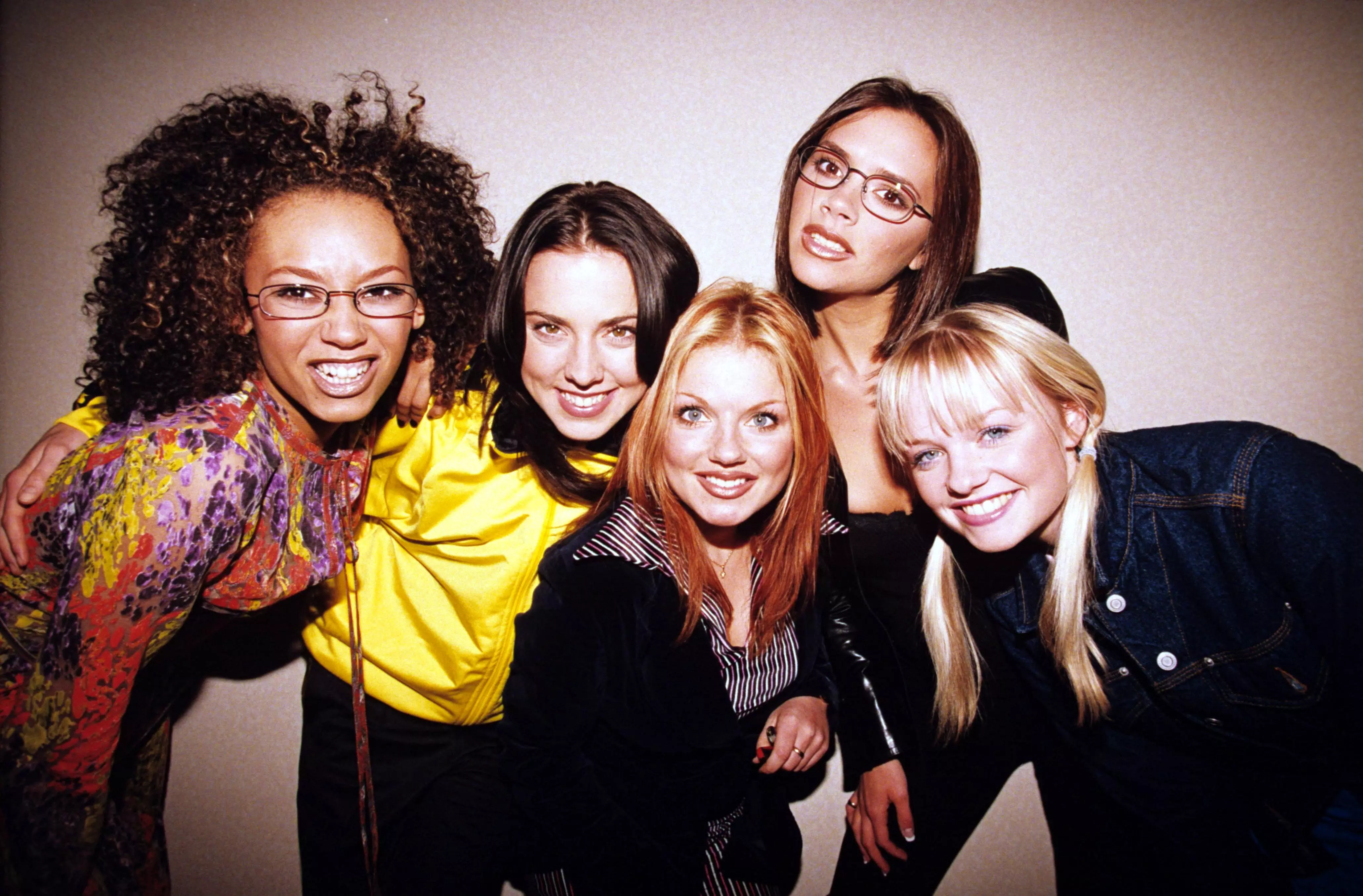
On This Day In Music: Spice Girls Release "Wannabe," Their Iconic Debut Single
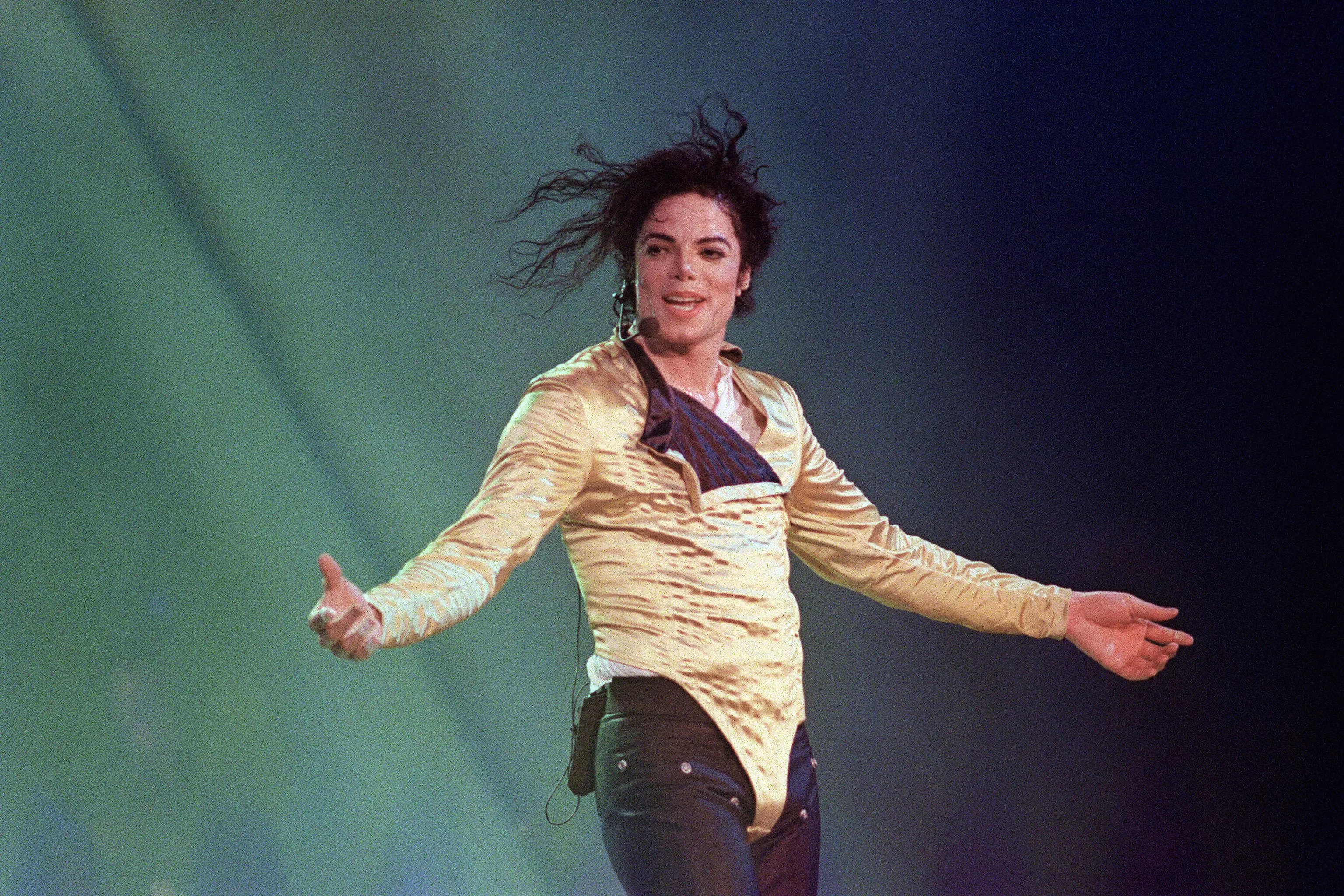
On This Day In Music: Michael Jackson Passes Away In Los Angeles At Age 50
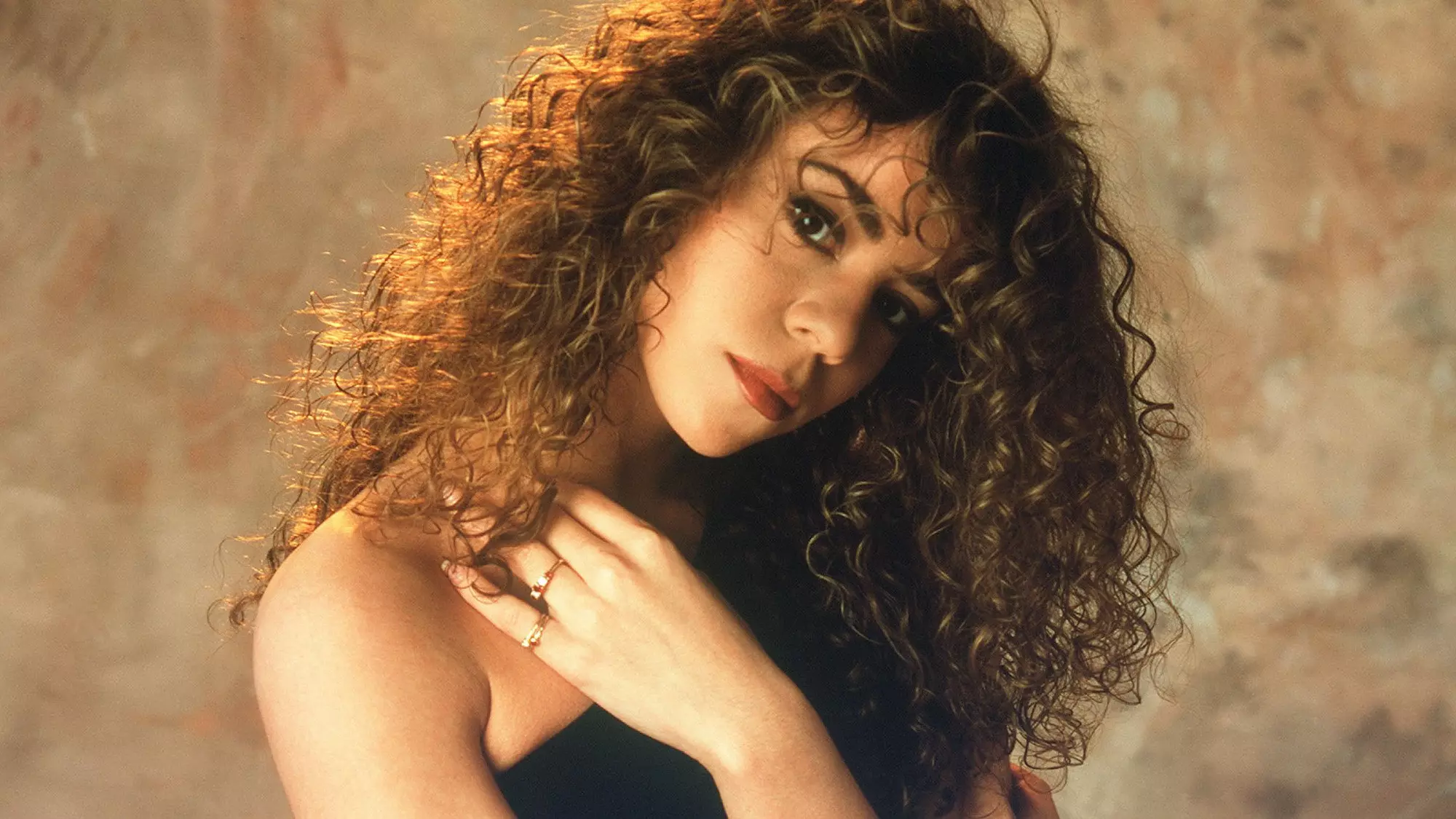
On This Day In Music: Mariah Carey Releases Her Self-Titled Debut Album
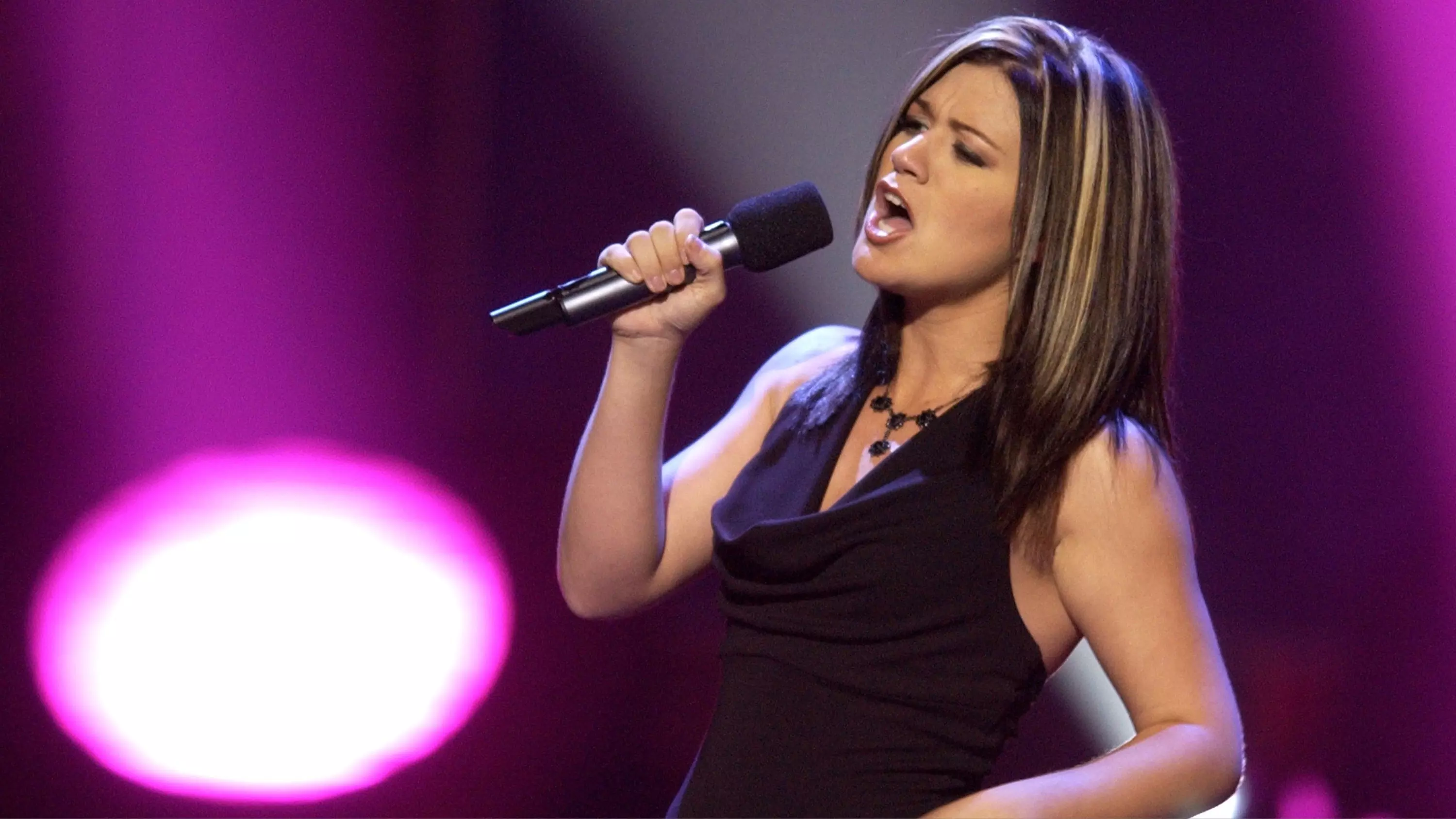
On This Day In Music: "American Idol" Premieres On Fox Network
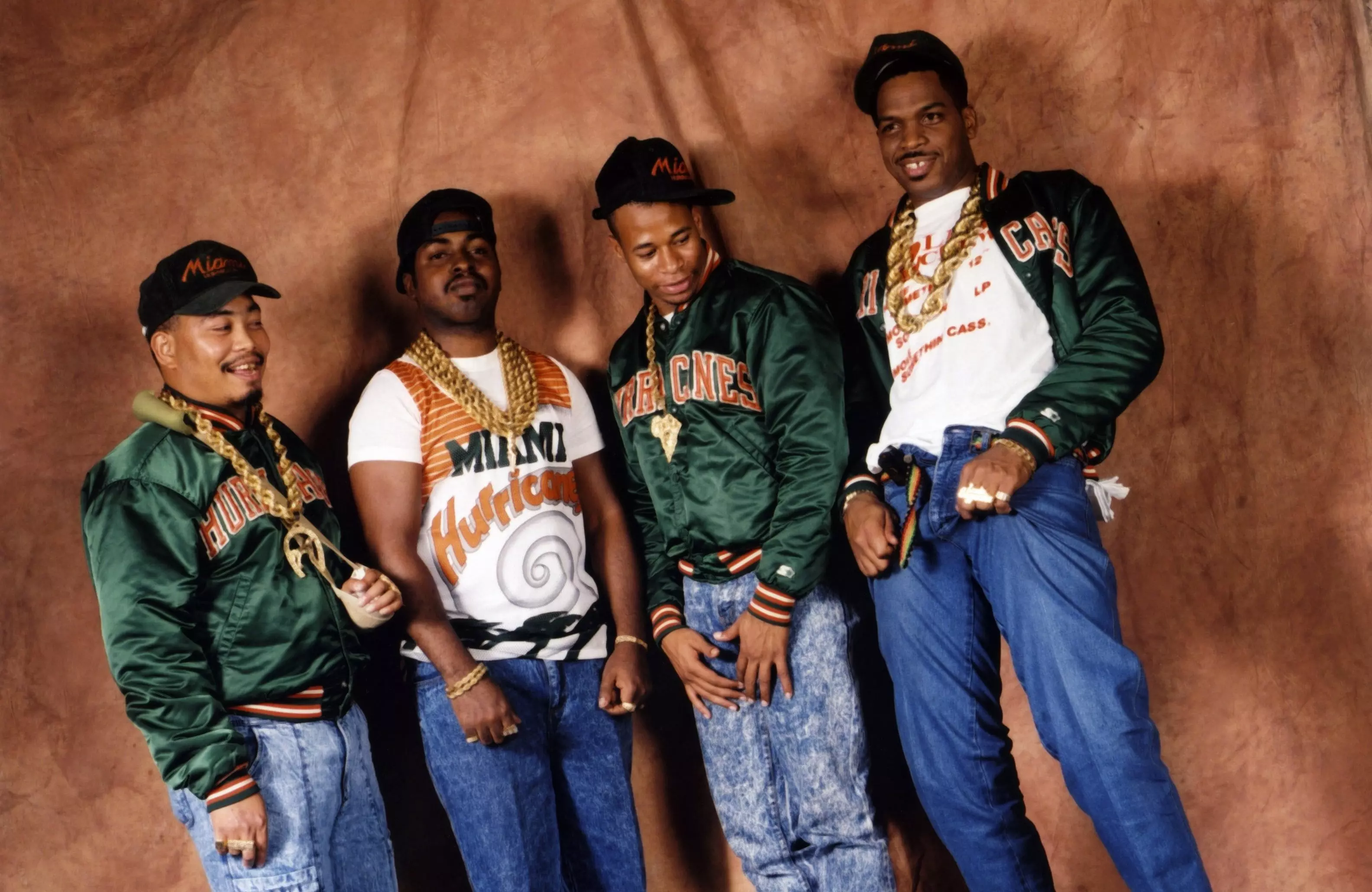
On This Day In Music: 2 Live Crew's 'As Nasty As They Wanna Be' Becomes First Album Declared Legally Obscene, Anticipates First Amendment Cases
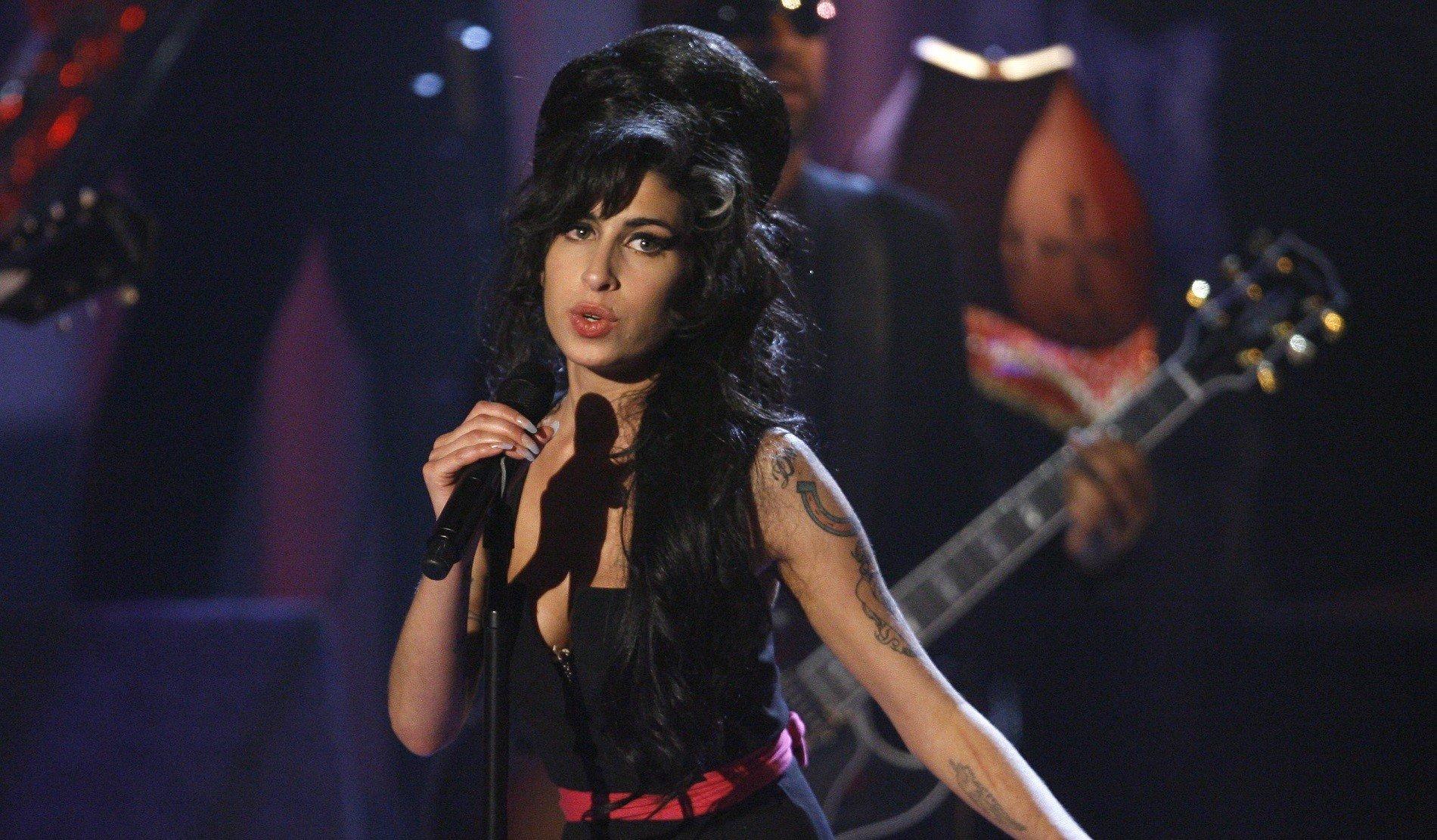
Photo: Chris Polk/FilmMagic
list
How Amy Winehouse's 'Back To Black' Changed Pop Music Forever
Ahead of the new Amy Winehouse biopic 'Back To Black,' reflect on the impact of the album of the same name. Read on for six ways the GRAMMY-winning LP charmed listeners and changed the sound of popular music.
When Amy Winehouse released Back To Black in October 2006, it was a sonic revelation. The beehive-wearing singer’s second full-length blended modern themes with the Shangri-Las sound, crafting something that seemed at once both effortlessly timeless and perfectly timed.
Kicking off with smash single "Rehab" before blasting into swinging bangers like "Me & Mr. Jones," "Love Is A Losing Game," and "You Know I’m No Good," Black To Black has sold over 16 million copies worldwide to date and is the 12th best-selling record of all time in the United Kingdom. It was nominated for six GRAMMY Awards and won five: Record Of The Year, Song Of The Year, Best New Artist, Best Female Pop Vocal Performance, and Best Pop Vocal Album.
Winehouse accepted her golden gramophones via remote link from London due to visa problems. At the time, Winehouse set the record for the most GRAMMYs won by a female British artist in a single year, though that record has since been broken by Adele, who won six in 2011.
Written in the wake of a break-up with on-again, off-again flame Blake Fielder-Civil, Black To Black explores heartbreak, grief, and infidelity, as well as substance abuse, isolation, and various traumas. Following her death in 2011, Back To Black became Winehouse’s most enduring legacy. It remains a revealingly soulful message in a bottle, floating forever on the waves.
With the May 17 release of Sam Taylor-Johnson’s new (and questionably crafted) Winehouse biopic, also titled Back To Black, it's the perfect time to reflect on the album that not only charmed listeners but changed the state of a lot of popular music over the course of just 11 songs. Here are five ways that Back To Black influenced music today.
She Heralded The Arrival Of The Alt Pop Star
When Amy Winehouse hit the stage, people remarked on her big voice. She had classic, old-time torch singer pipes, like Sarah Vaughn or Etta Jones, capable of belting out odes to lost love, unrequited dreams, and crushing breakups. And while those types of singers had been around before Winehouse, they didn’t always get the chance — or grace required — to make their kind of music, with labels and producers often seeking work that was more poppy, hook-packed, or modern.
The success of Back To Black changed that, with artists like Duffy, Adele, and even Lady Gaga drawing more eyes in the wake of Winehouse’s overwhelming success. Both Duffy and Adele released their debut projects in 2007, the year after Back To Black, bringing their big, British sound to the masses. Amy Winehouse's look and sound showed other aspiring singers that they could be different and transgressive without losing appeal.
Before she signed to Interscope in 2007, "nobody knew who I was and I had no fans, no record label," Gaga told Rolling Stone in 2011. "Everybody, when they met me, said I wasn’t pretty enough or that my voice was too low or strange. They had nowhere to put me. And then I saw [Amy Winehouse] in Rolling Stone and I saw her live. I just remember thinking ‘well, they found somewhere to put Amy…’"
If an artist like Winehouse — who was making records and rocking styles that seemed far outside the norm — could break through, then who’s to say someone else as bold or brassy wouldn’t do just as well?
It Encouraged Other Torch Singers In The New Millenium
Back To Black might have sounded fun, with swinging cuts about saying "no" to rehab and being bad news that could seem lighthearted to the casual listener. Dig a little deeper, though, and it’s clear Winehouse is going through some real romantic tumult.
Before Back To Black was released, Fielder-Civil had left Winehouse to get back together with an old girlfriend, and singer felt that she needed to create something good out of all those bad feelings. Songs like "Love Is A Losing Game" and "Tears Dry On Their Own" speak to her fragile emotional state during the making of the record, and to how much she missed Fielder-Civil. The two would later marry, though the couple divorced in 2009.
Today, young pop singers like Olivia Rodrigo, Taylor Swift, and Selena Gomez are lauded for their songs about breakups, boyfriends, and the emotional damage inflicted by callous lovers. While Winehouse certainly wasn’t the first to sing about a broken heart, she was undoubtedly one of the best.
It Created A Bit Of Ronsonmania
Though Mark Ronson was already a fairly successful artist and producer in his own right before he teamed with Winehouse to write and co-produce much of Back To Black, his cred was positively stratospheric after the album's release. Though portions of Back To Black were actually produced by Salaam Remi (who’d previously worked with Winehouse on Frank and who was reportedly working on a follow-up album with her at the time of her death), Ronson got the lion’s share of credit for the record’s sound — perhaps thanks to his his GRAMMY win for Best Pop Vocal Album. Winehouse would even go on to guest on his own Version record, which featured the singer's ever-popular cover of "Valerie."
In the years that followed, Ronson went on to not only produce and make his own funky, genre-bending records, but also to work with acts like Adele, ASAP Rocky, and Paul McCartney, all of whom seemingly wanted a little of the retro soul Ronson could bring. He got huge acclaim for the funk-pop boogie cut "Uptown Funk," which he wrote and released under his own name with help from Bruno Mars, and has pushed into film as well, writing and producing over-the-top tracks like A Star Is Born’s "Shallow" and Barbie’s "I’m Just Ken." To date, he’s been nominated for 17 GRAMMY Awards, winning eight.
Ronson has always acknowledged Winehouse’s role in his success, as well, telling "BBC Breakfast" in 2010, "I've always been really candid about saying that Amy is the reason I am on the map. If it wasn't for the success of Back To Black, no one would have cared too much about Version."
Amy Showcased The Artist As An Individual
When the GRAMMY Museum hosted its "Beyond Black - The Style of Amy Winehouse" exhibit in 2020, Museum Curator and Director of Exhibitions Nicholas Vega called the singer's sartorial influence "undeniable." Whether it was her beehive, her bold eyeliner, or her fitted dresses, artists and fans had adopted elements of Winehouse’s Back To Black style into their own fashion repertoire. And though it’s the look we associate most with Winehouse, it was actually one she had truly developed while making the record, amping up her Frank-era low-slung jeans, tank tops, and polo shirts with darker eyeliner and much bigger hair, as well as flirty dresses, vibrant bras, and heels.
"Her stylist and friends were influential in helping her develop her look, but ultimately Amy took bits and pieces of trends and styles that she admired to create her own look," Vega told GRAMMY.com in 2020. While rock ‘n’ rollers have always leaned into genre-bending styles, Winehouse’s grit is notable in the pop world, where artists typically have a bit more of a sheen. These days, artists like Miley Cyrus, Billie Eillish, and Demi Lovato are willing to let their fans see a bit more of the grit — thanks, no doubt, to the doors Winehouse opened.
Winehouse also opened the door to the beauty salon and the tattoo studio, pushing boundaries with not just her 14 different vintage-inspired tattoos — which have become almost de rigeur these days in entertainment — but also with her signature beehive-like bouffant, which hadn’t really been seen on a popular artist since the ‘60s.It’s a frequent look for contemporary pop divas, popping up on artists like Ariana Grande, Lana Del Rey, and Dua Lipa.
The Dap-Kings Got The Flowers They Deserved
Six of Back To Black’s 11 songs, including "Rehab," got their "retro" sound via backing from the Dap-Kings, a Brooklyn-based soul act Ronson recruited for the project.
While Winehouse’s lyrics were mostly laid down in London, the Dap-Kings did their parts in New York. Ronson told GRAMMY.com in 2023 that the Dap-Kings "brought ['Rehab'] to life," saying, "I felt like I was floating because I couldn’t believe anybody could still make that drum sound in 2006." Winehouse and the Dap-Kings met months later after the record was released, and recorded "Valerie." The band later backed Winehouse on her U.S. tour.
Though the Dap-Kings were known in hip musical circles for their work with late-to-success soul sensation Sharon Jones, Back To Black’s immense success buoyed the listening public’s interest in soul music and the Dap-Kings' own profile (not to mention that of their label, Daptone Records).
"Soul music never went away and soul lovers never went away, but they’re just kind of closeted because they didn’t think it was commercially viable," Dap-Kings guitarist Binky Griptite said in the book It Ain't Retro: Daptone Records & The 21st Century Soul Revolution. "Then, when Amy’s record hit, all the undercover soul fans are like, I’m free. And then that’s when everybody’s like, Oh, there’s money in it now."
The success of Back To Black also seems to have firmly cemented the Dap-Kings in Ronson’s Rolodex, with the group’s drummer Homer Steinweiss, multi-instrumentalist Leon Michaels, trumpeter Dave Guy, and guitarist/producer Tom Brenneck appearing on many of his projects; the Dap-Kings' horns got prominent placement in "Uptown Funk."
Amy Exposed The Darker Side Of Overwhelming Success
Four years after Winehouse died, a documentary about her life was released. Asif Kapadia’s Amy became an instant rock-doc classic, detailing not only Winehouse’s upbringing, but also her struggles with fame and addiction. It won 30 awards after release, including Best Documentary Feature at the 88th Academy Awards and Best Music Film at the 58th GRAMMY Awards.
It also made a lot of people angry — not for how it portrayed Winehouse, but for how she was made to feel, whether by the British press or by people she considered close. The film documented Winehouse’s struggles with bulimia, self-harm, and depression, and left fans and artists alike feeling heartbroken all over again about the singer’s passing.
The documentary also let fans in on what life was really like for Winehouse, and potentially for other artists in the public eye. British rapper Stormzy summed it up well in 2016 when he told i-D, "I saw the [documentary, Amy] – it got me flipping angry... [Amy’s story] struck a chord with me in the sense that, as a creative, it looks like on the outside, that it’s very ‘go studio, make a hit, go and perform it around the world, champagne in the club, loads of girls’. But the graft and the emotional strain of being a musician is very hard. No one ever sees that part."
These days, perhaps because of Winehouse’s plight or documentaries like Amy, the music-loving population seems far more inclined to give their favorite singers a little grace, whether it’s advocating for the end of Britney Spears’ conservatorship or sympathizing with Demi Lovato’s personal struggles. Even the biggest pop stars are still people, and Amy really drove that point home.
We Only Said Goodbye With Words: Remembering Amy Winehouse 10 Years Later
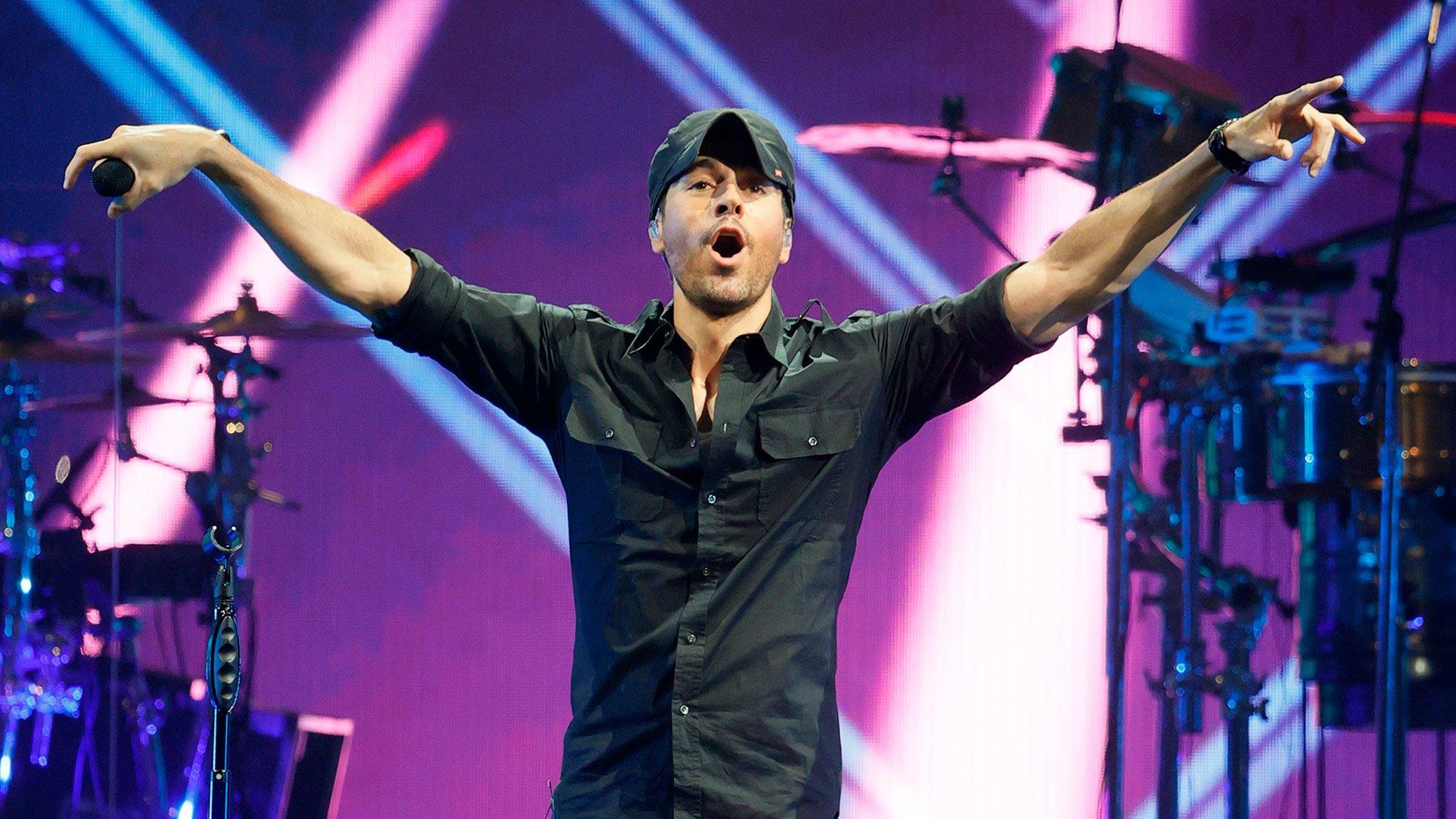
Photo: Ethan Miller/Getty Images
list
Enrique Iglesias Forever: 10 Songs That Prove He's A Latin Pop Hero
Ahead of what might be his final album — 'Final (Vol. 2),' out March 29 — celebrate Enrique Iglesias' legacy of groundbreaking Latin pop with 10 tracks of heartbreak, sensuality and dancefloor bangers.
Latin music has gone global and Enrique Iglesias is one of the superstars who laid the foundation for that crossover. The Spanish pop icon's music career spans four decades of hits both in his native tongue and in English. Following his reign as Billboard’s Greatest Latin Artist of All-Time, Iglesias marks the end of an era with the last album of his career, Final Vol. 2.
Iglesias followed in the footsteps of his father, singer/songwriter Julio Iglesias, and made his own debut in the 1990s with Spanish-language love songs. He began singing in English at the end of the decade, and subsequently led an explosion of interest in Latin pop alongside acts like Ricky Martin, Jennifer Lopez, and later Shakira.
As of writing, Iglesias has a record-breaking 27 No. 1 singles on Billboard's Hot Latin Songs chart, and solidified himself as a global heartthrob with an allure that defies language barriers. For his efforts, Iglesias has won one GRAMMY and five Latin GRAMMY Awards.
Enrique Iglesias will release what will likely be his final album on March 29, aptly titled Final (Vol. 2). Ahead of his final bow, here are 10 tracks that celebrate Iglesias' legacy in Latin music.
"Experiencia Religiosa" (1995)
Iglesias made his debut in 1995 with a self-titled first album. Among the ballads on the10-track LP, the otherworldly "Experiencia Religiosa" best demonstrates the power of his charm.
Backed by the piano with elements of gospel music, Iglesias belts his heart out about a night of passion that felt like spiritual awakening. To capture the energy of the sparks flying, an electric guitar solo rounded out his soulful yet sexy sermon. Iglesias demonstrated his knack for seamlessly blending together romance and sex appeal, which would go on to define his artistry and style.
Enrique Iglesias earned the singer his first golden gramophone at the 39th GRAMMY Awards for Best Latin Pop Performance.
"Nunca Te Olvidaré" (1997)
Iglesias proved that he was here to stay with his third album, 1997's Cosas Del Amor. The LP includes one of his signature love songs, "Nunca Te Olvidaré."
Iglesias' voice reached angelic highs in the Spanish-language power ballad, which details romance that left a lasting impression. No matter what happened, the love Iglesias shared with that person couldn't be forgotten — much like his impact on the Latin pop explosion that was brewing.
"Bailamos" (1999)
Proving he was so much bigger than the Iglesias last name, he crossed over into the English-language market with his 1999 album Enrique. Iglesias became a global Latin pop heartthrob with the sultry club banger "Bailamos." The song was featured on the Wild Wild West soundtrack, after Will Smith personally invited Iglesias to contribute music to the project.
Backed by the strum of the Spanish guitar with alluring synths, he invited the world to dance with him in English and Spanish. In a major moment for Latin acts at the time, the song topped the all-genre Billboard Hot 100 chart. The massive success of the song led Iglesias to sign with Interscope Records, where he released his breakthrough album.
"Could I Have This Kiss Forever" (1999)
One of the underrated gems on Iglesias' Enrique album is his collaboration with six-time GRAMMY-winner Whitney Houston.
The late pop legend joined forces with him for the sensual "Could I Have This Kiss Forever," making worlds collide with an irresistible mix of Latin percussion, Spanish guitar, and R&B. Houston also sang a bit in Spanish with Iglesias. His dreamy duet with Houston (who also sings in Spanish) broke down barriers for collaborations between Latin and English-language pop acts. In the years that followed, he collaborated with superstars like Kelis, Ciara, and Usher.
"Hero" (2001)
Iglesias' love songs in English touched the hearts of millions around the world. One of his enduring classics is the empowering "Hero" from his 2001 album Escape.
The beautiful ballad was released in both English and Spanish. In one of most tender vocal performances, Iglesias serenades his lover with sweet lyrics about always being by her side. After the song impressively peaked at No. 3 on Billboard's Hot 100 chart, Iglesias proved that his star power was here to stay.
The song also became an anthem of hope for the U.S. following the Sept. 11 attacks, and Iglesias was invited to perform "Hero" for the broadcast special "America: A Tribute to Heroes."
"Bailando" (2014)
After laying the foundation for the globalization of Latin music, Iglesias enjoyed one of his greatest career triumphs in 2014 — in both Spanish and English.
The feel-good smash "Bailando" blended Caribbean rhythms with flamenco influences, bringing together Sean Paul and Cuba's Descemer Bueno and Gente De Zona. The Spanglish banger peaked at No. 12 on the Billboard Hot 100 chart. At the 2014 Latin GRAMMYs, Iglesias and his collaborators took home golden gramophones for Song Of The Year, Best Urban Performance, and Best Urban Song.
The success of the song also helped usher in the reggaeton music revival of the last decade. Pop and reggaeton collaborations became more commonplace with songs like "Despacito" by Luis Fonsi and Daddy Yankee and J Balvin’s "Mi Gente" remix with Beyoncé later following suit.
"Beautiful" (2014)
Iglesias joined forces with GRAMMY-winning dance-pop icon Kylie Minogue for "Beautiful," a haunting love song about a formidable romance that could withstand the apocalypse.
The electronic ballad was co-produced by Mark Taylor, who was also at the helm of Iglesias' collaboration with Houston. Iglesias and Minogue's voices melted together in a hypnotic harmony that made this song live up to its name. The song was included on Minogue’s Kiss Me Once album and deluxe edition of Iglesias’ Sex and Love LP.
"El Baño" (2018)
Before he became a GRAMMY-winning global star, Puerto Rican singer Bad Bunny teamed up with Iglesias for a freaky reggaeton romp, "El Baño."
Iglesias first turned up the heat by singing about getting intimate with his lover in the restroom. Bad Bunny dropped in that halfway point as his wingman with a fiery guest verse. The hypnotic collaboration was included on Iglesias' penultimate album Final (Vol. 1).
Iglesias later added a woman’s perspective to the song, bringing on Dominican reggaeton star Natti Natasha joining them on the remix. As one of Latin pop’s most daring artists, he was never afraid to push boundaries with his risque tracks.
"Space In My Heart" (2024)
After the release of his reggaeton-heavy Final (Vol. 1), Iglesias was ready to be more adventurous with the music that followed. In 2022, Iglesias ventured into country music for the first time with "Espacio En Tu Corazón."
To bring some more authenticity to the English-language version of the song, "Space In My Heart," Iglesias teamed up with GRAMMY-winning country star Miranda Lambert. The breathtaking country-pop ballad features Iglesias and Lambert singing passionately about winning over the hearts of their crushes.
The song is a highlight on the last album of his career, Final (Vol. 2). And while it seems like this may be the singer's final hurrah, Iglesias told PEOPLE in 2021: "No, I'm never gonna retire! I'm gonna keep on writing songs but that doesn't mean I need to be putting out albums every so often."
"Fría" (2024)
Iglesias is going out in style with "Fría." For the most vibrant song on Final Vol. 2, Iglesias collaborates with Cuban singer/songwriter Yotuel on a frisky and refreshing banger, which blends reggaeton beats with elements of tropical music.
Iglesias sounds like he's having a blast with Yotuel as they try to convince their partners there was no infidelity at last night's wild party. "I just went out for a cold one," Iglesias winkingly sings in Spanish. Cheers to the legacy of one of Latin pop's greater stars.
10 Women Artists Leading A Latin Pop Revolution: Kenia Os, Belinda & More
